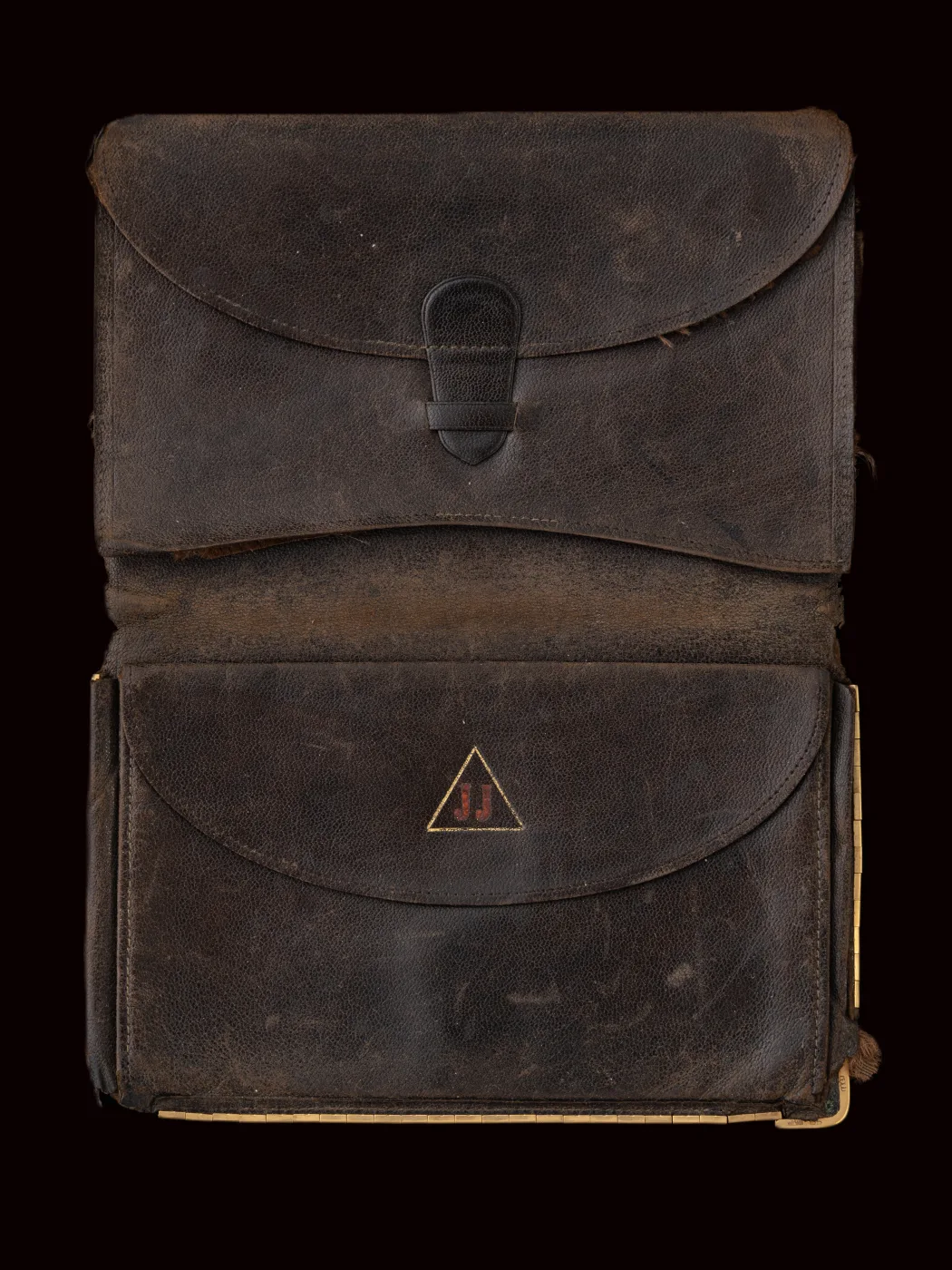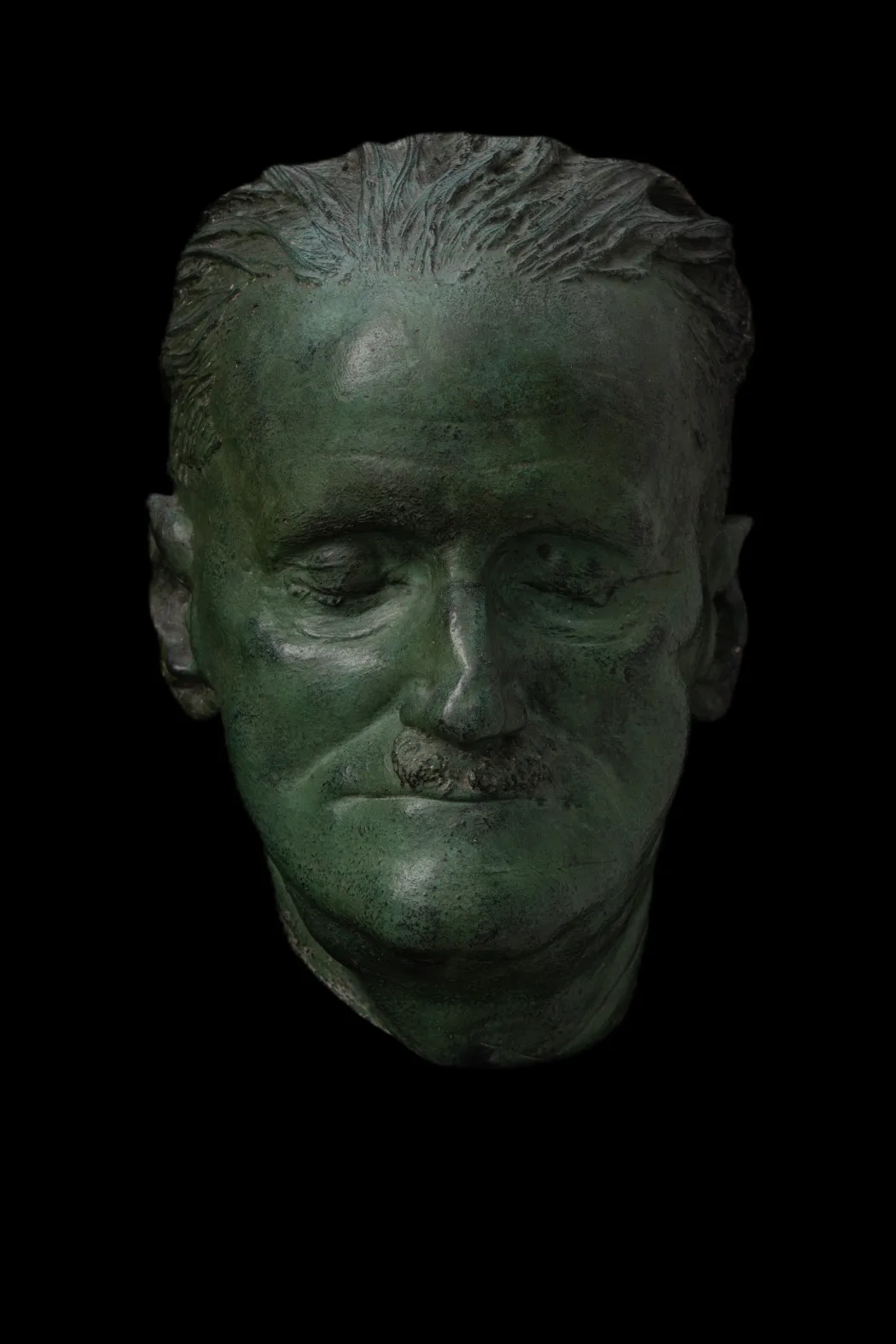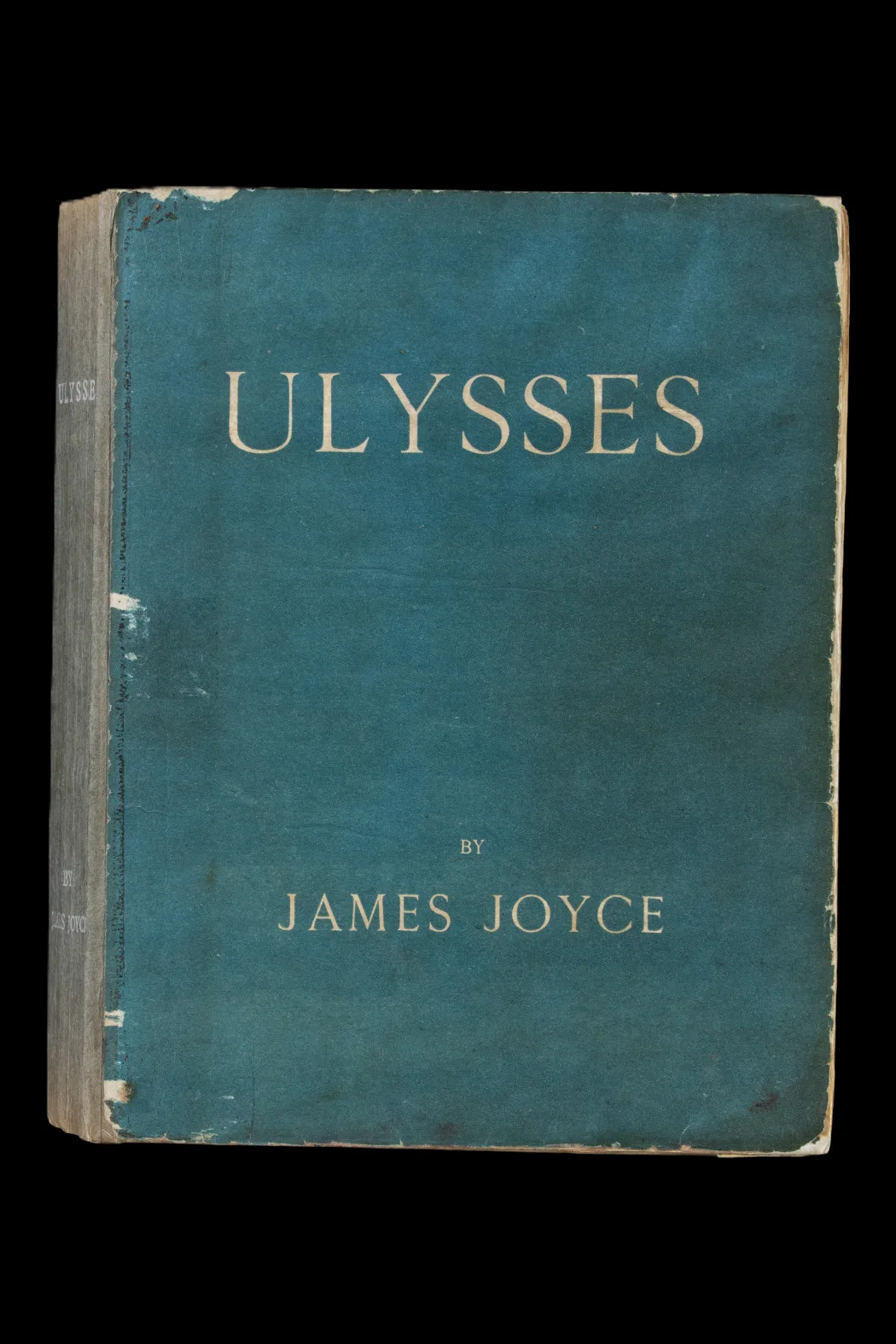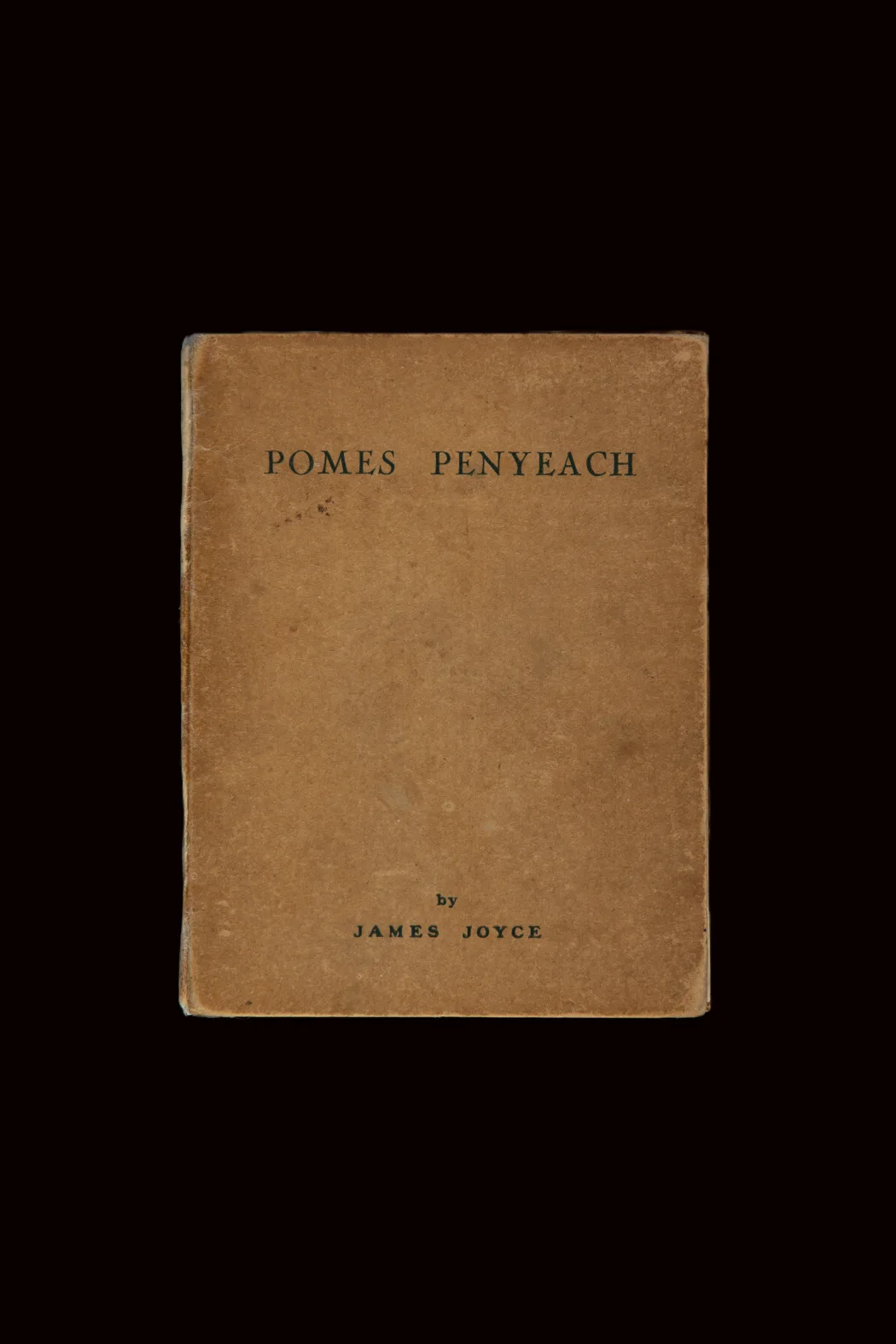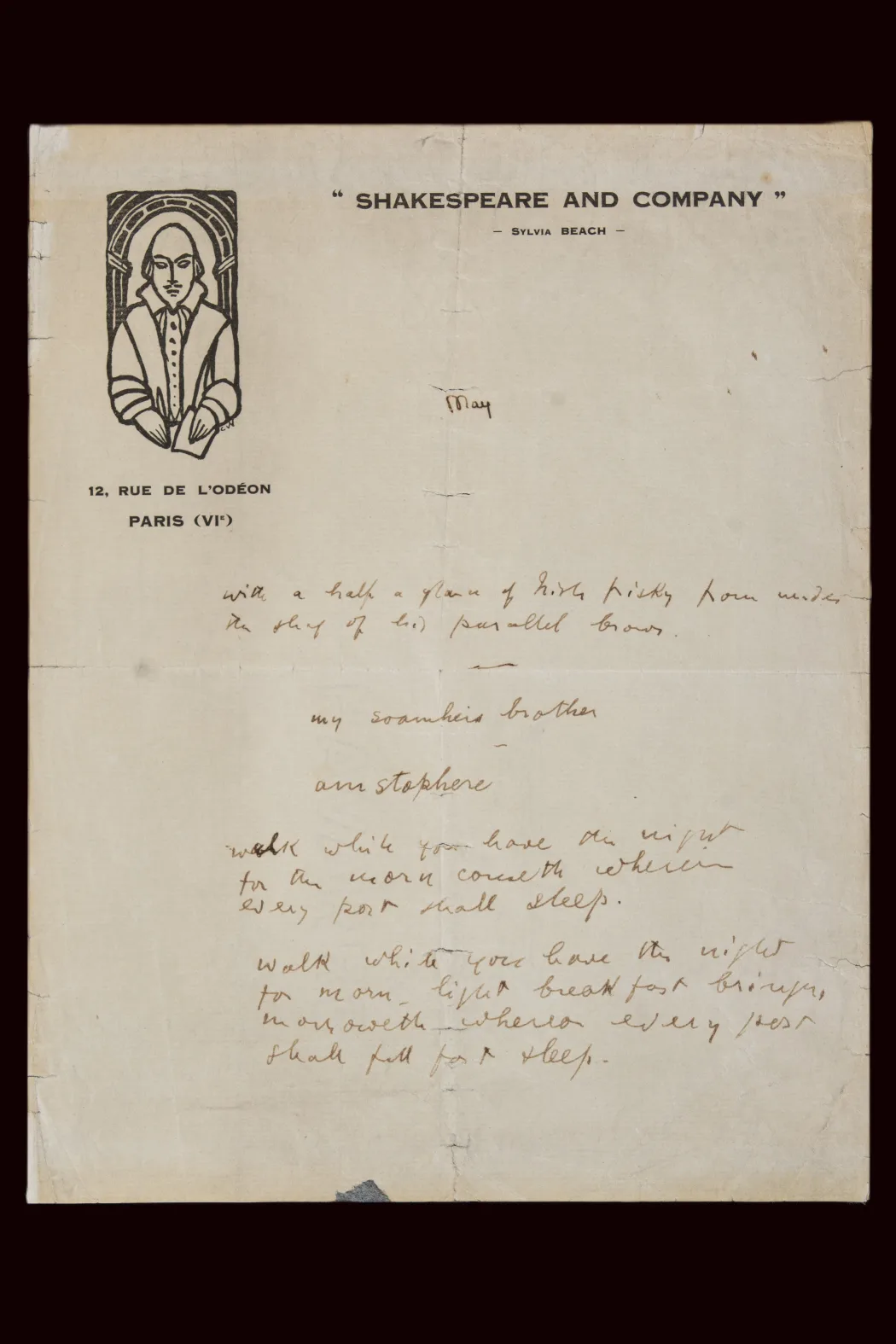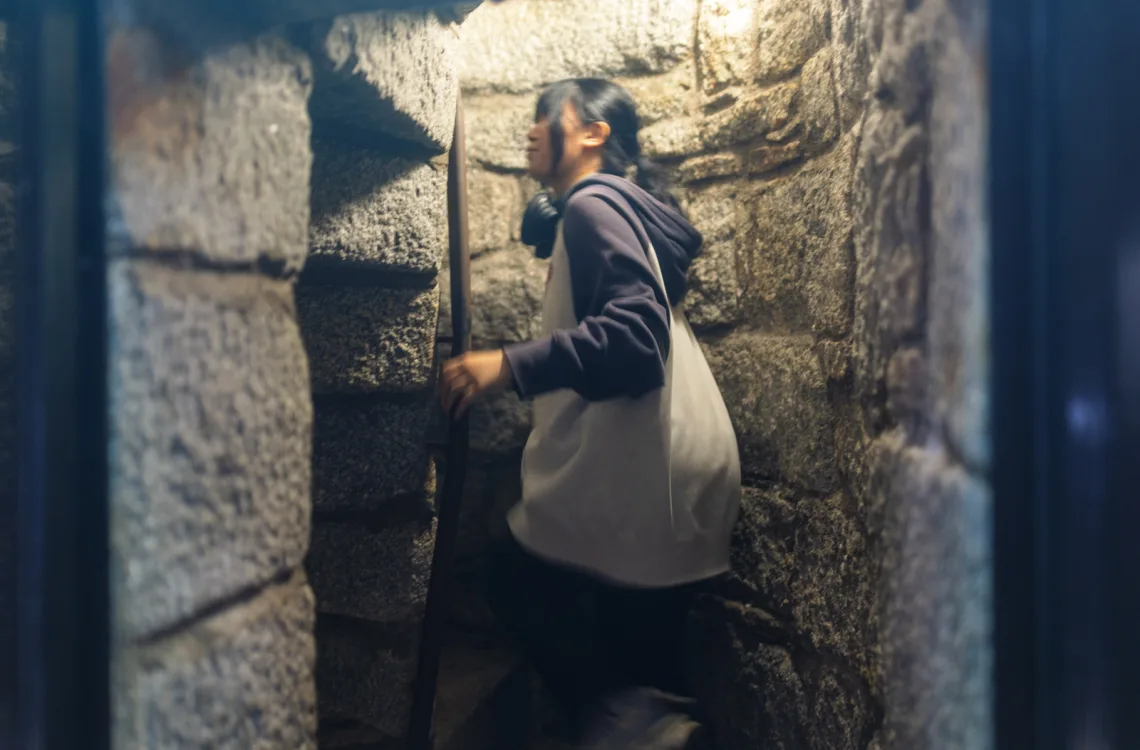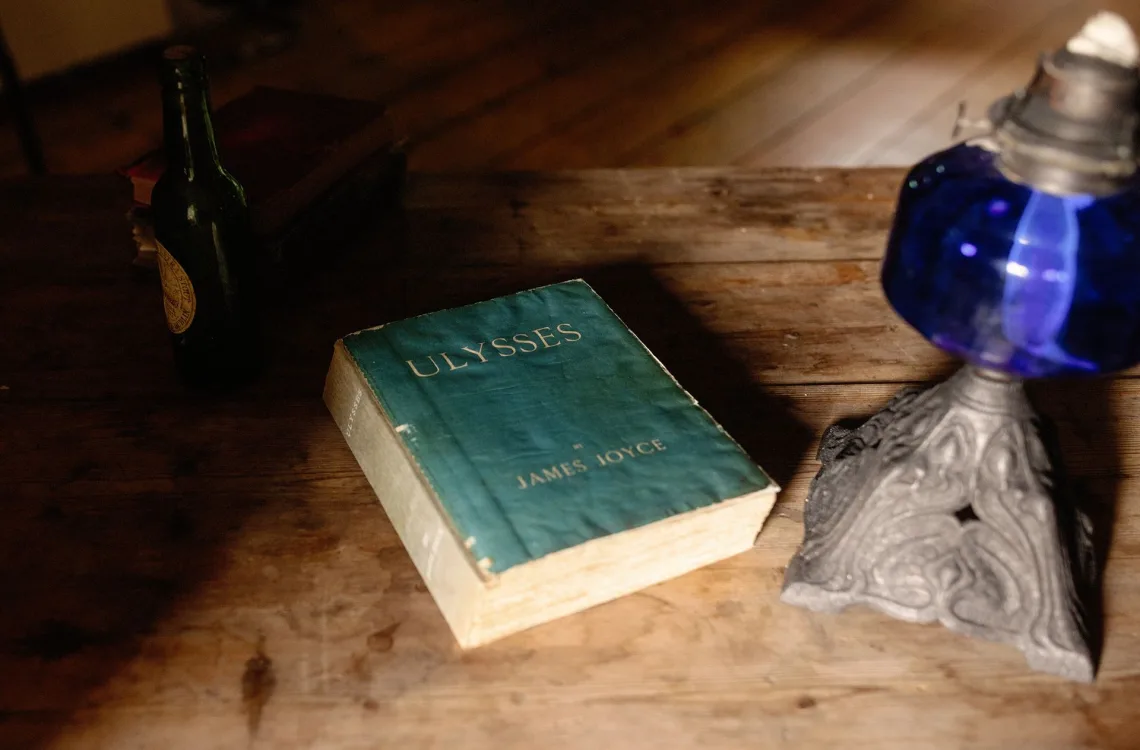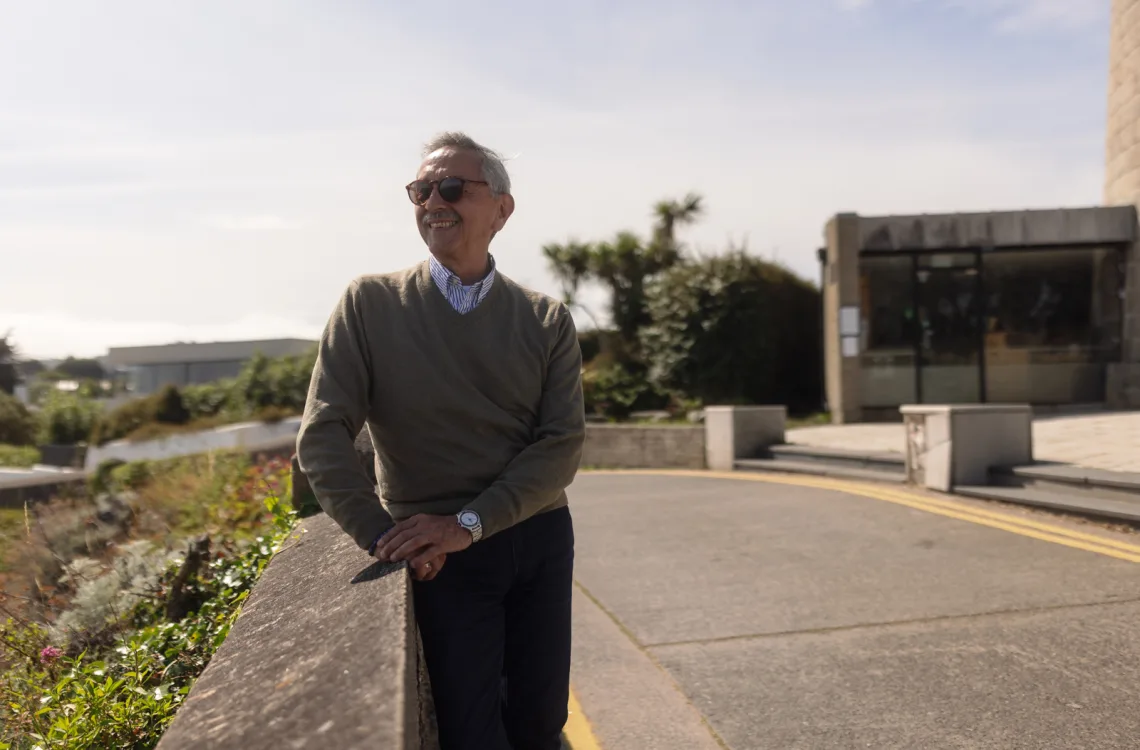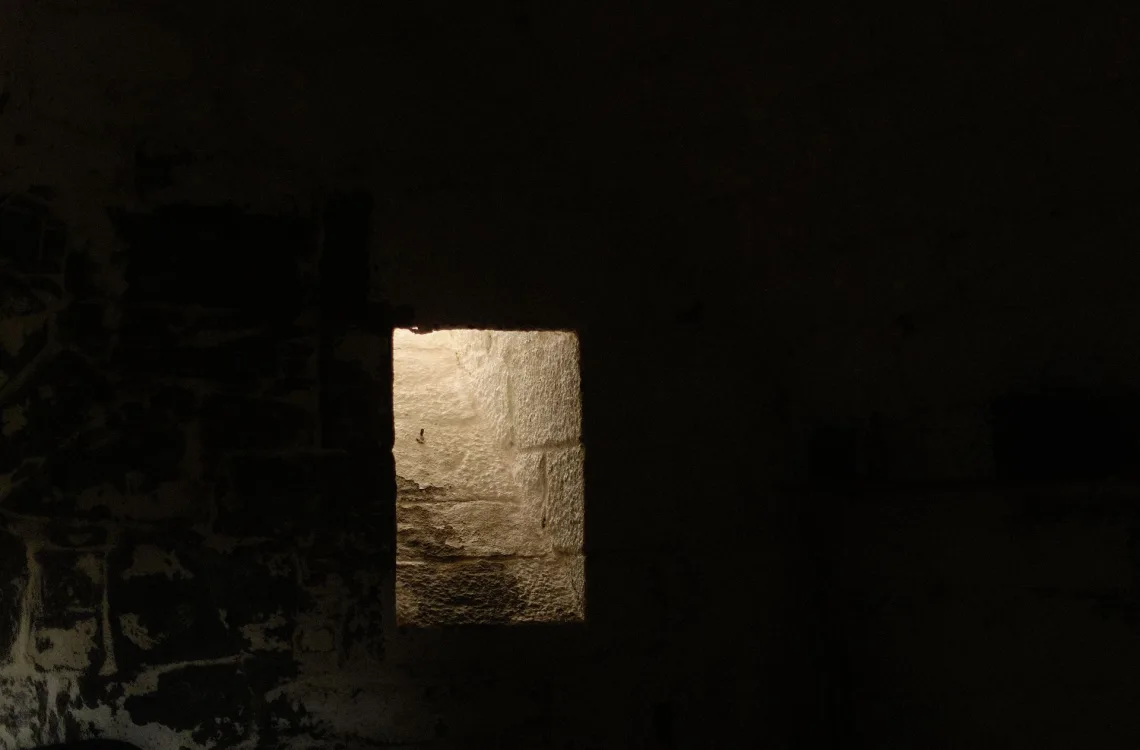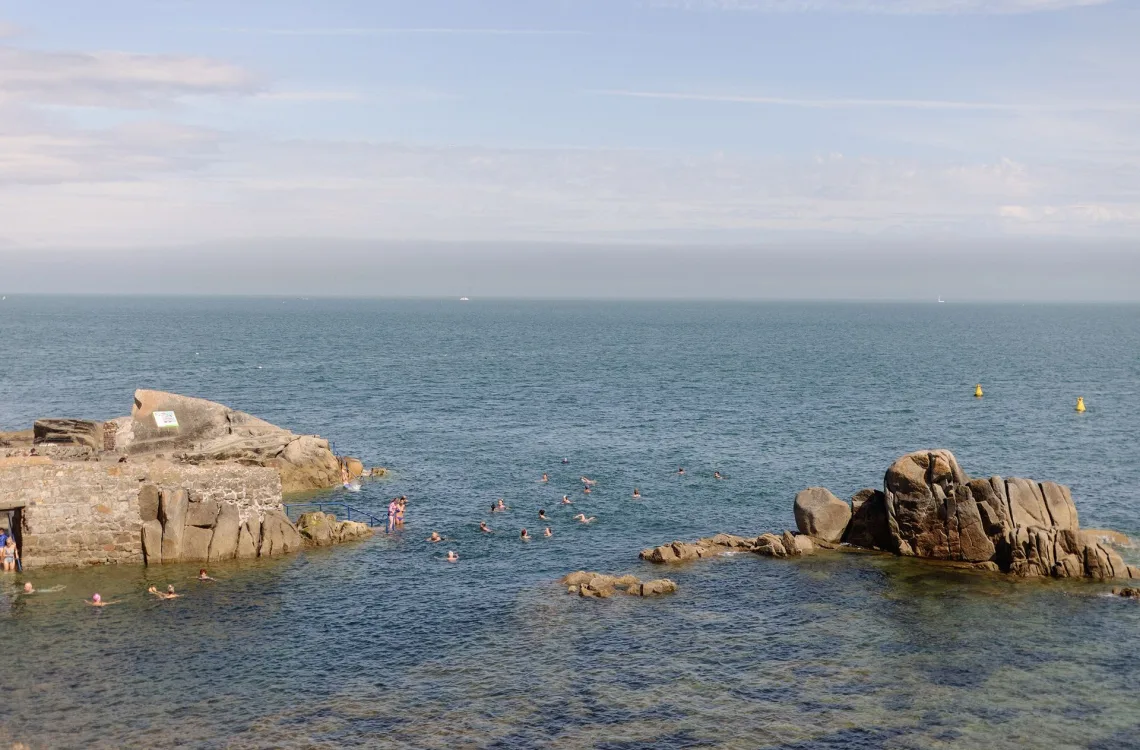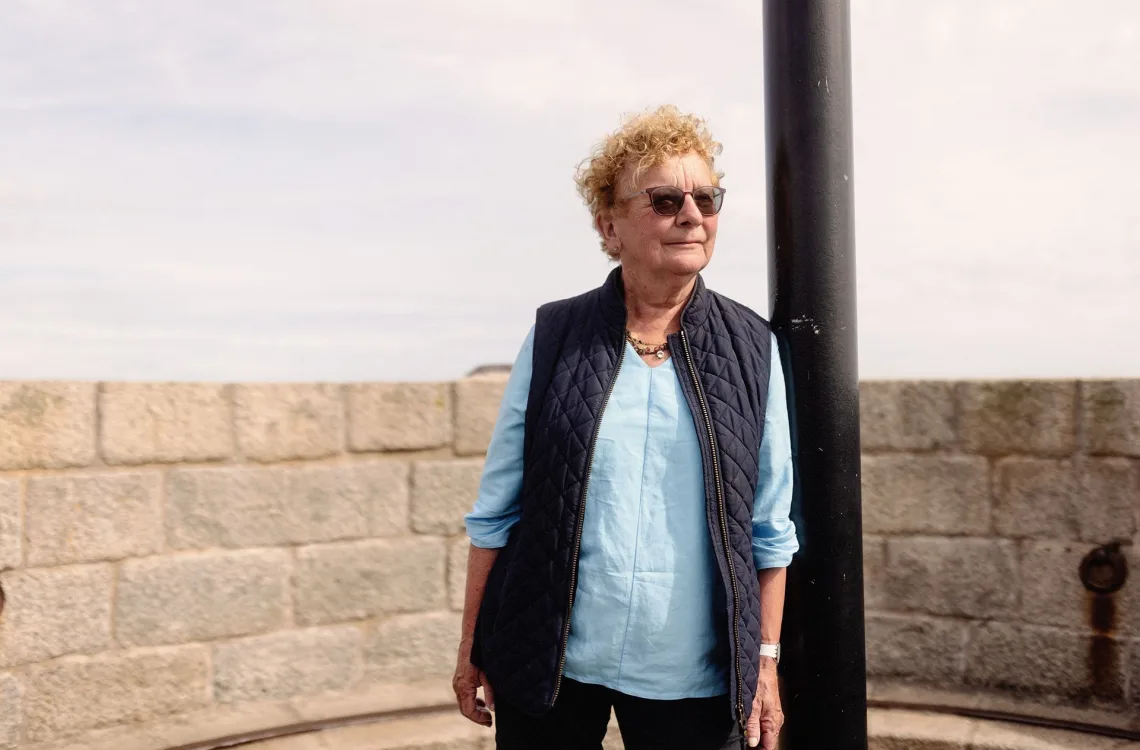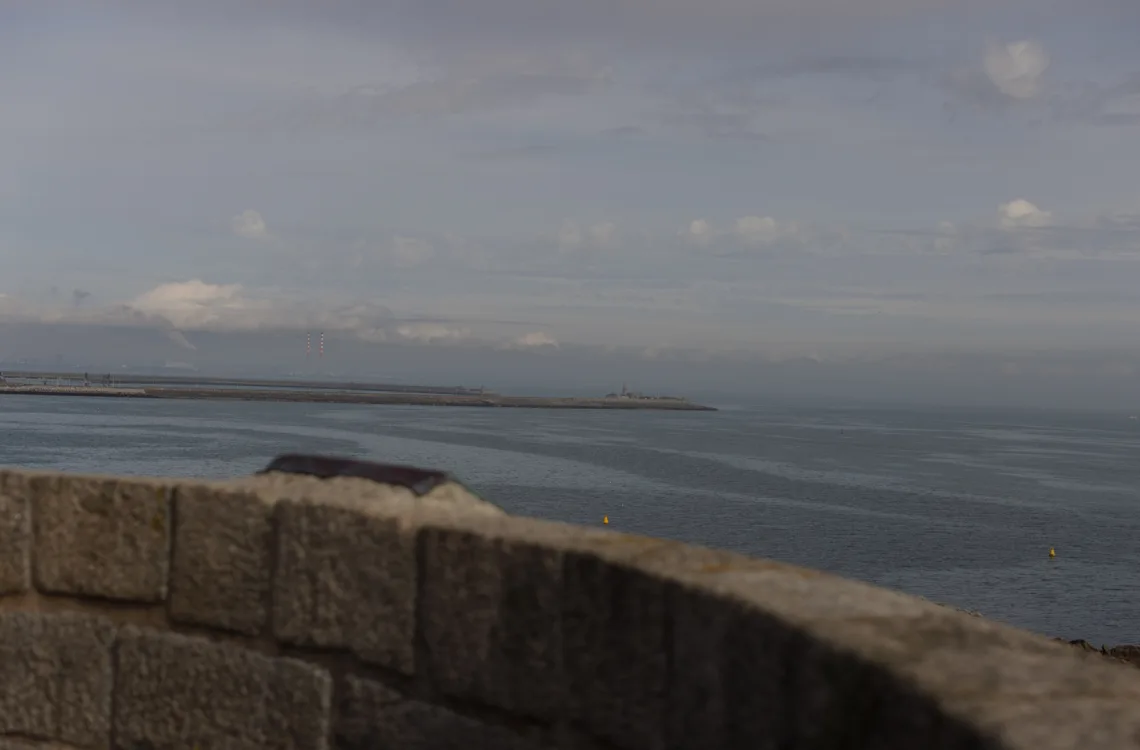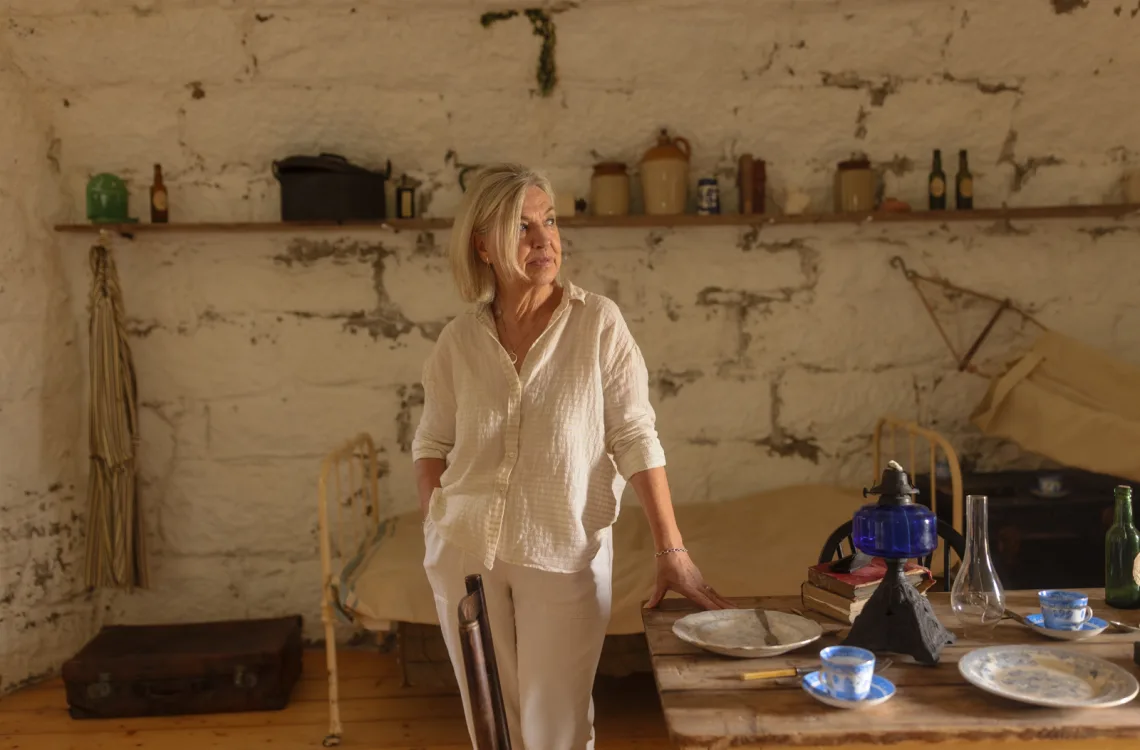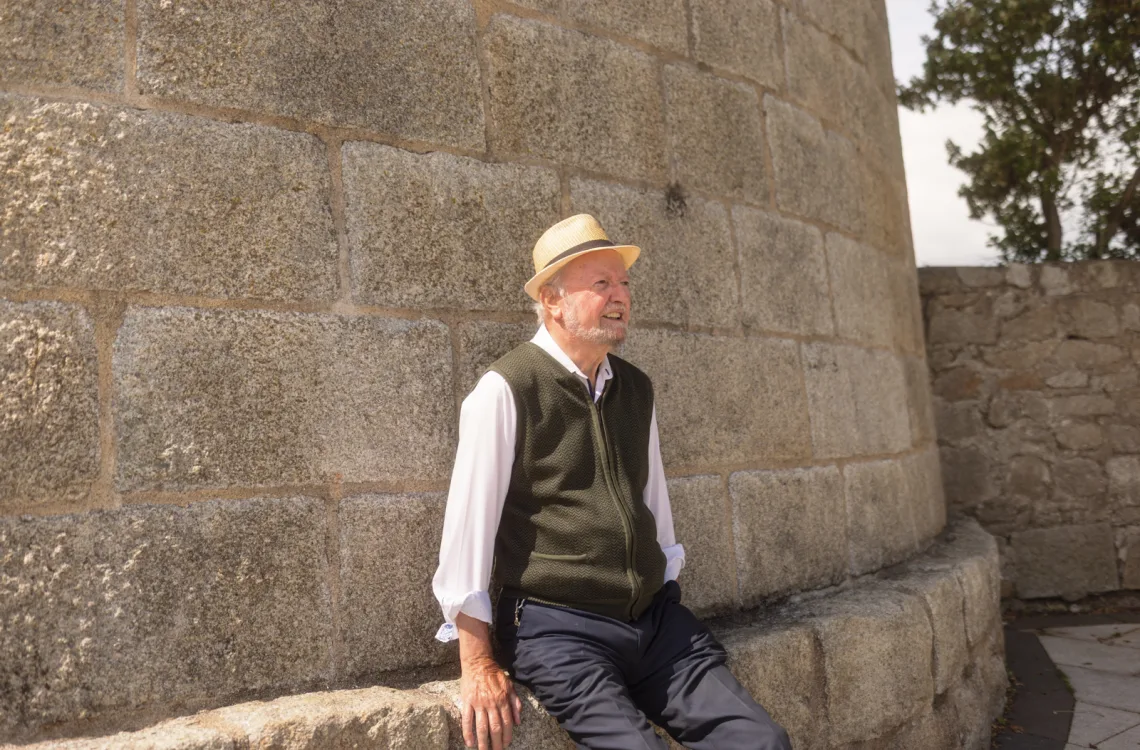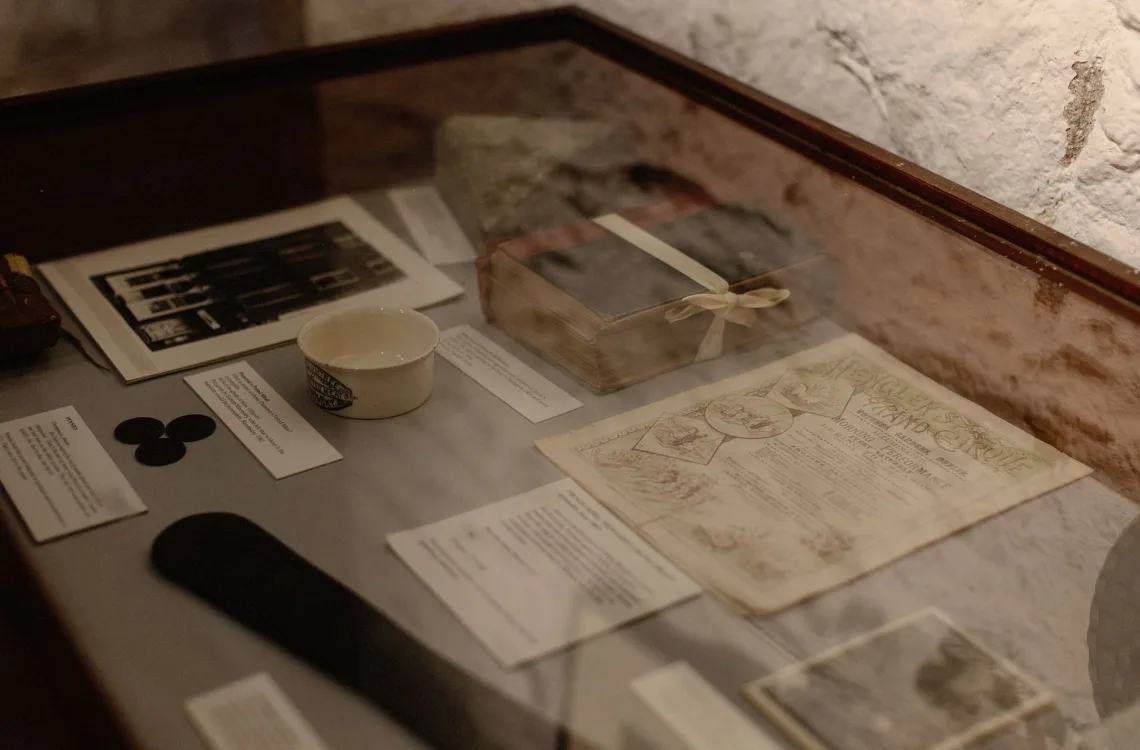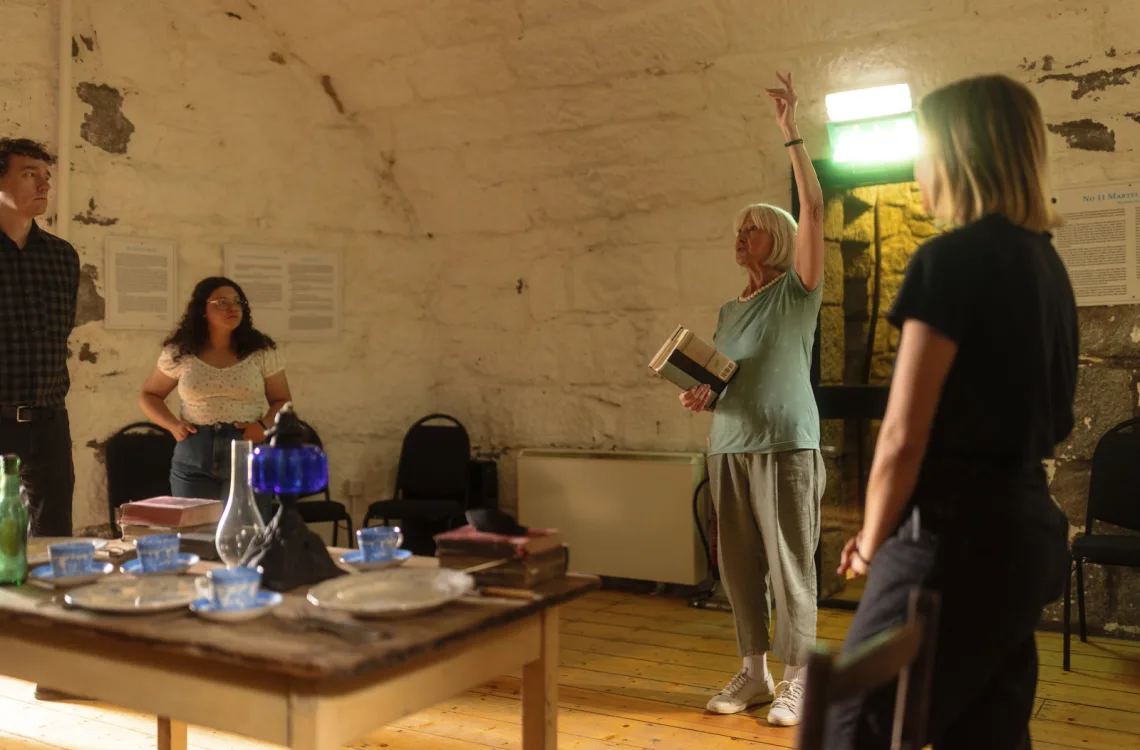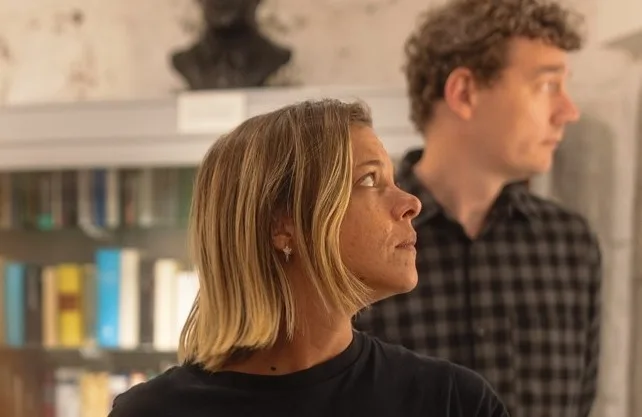
Ours is the
Omphalos
It all begins
with us

Stately, plump Buck Mulligan came from the stairhead, bearing a bowl of lather on which a mirror and a razor lay crossed. A yellow dressinggown, ungirdled, was sustained gently behind him by the mild morning air. He held the bowl aloft and intoned: —INTROIBO AD ALTARE DEI.
The History of Joyce & The Tower
The Man & The Tower
From a brief stay to an enduring legacy, James Joyce’s connection to the Martello Tower at Sandycove has become part of literary and cultural history. It served as the setting for the opening of Ulysses, a landmark shaped by memory, story, and place.
Our Collections
Artefacts, Publications & Records
Latest Events
Plan Your Visit to the James Joyce Tower
Located at Sandycove Point, just 2 km from Dún Laoghaire and 14 km from Dublin city centre. Take the DART to Sandycove & Glasthule. Bus 59 stops at Sandycove Road; Bus 7 stops at George’s Street Upper, a 15min walk via Glasthule.
Please note: The tower is not wheelchair accessible.
Learn More



